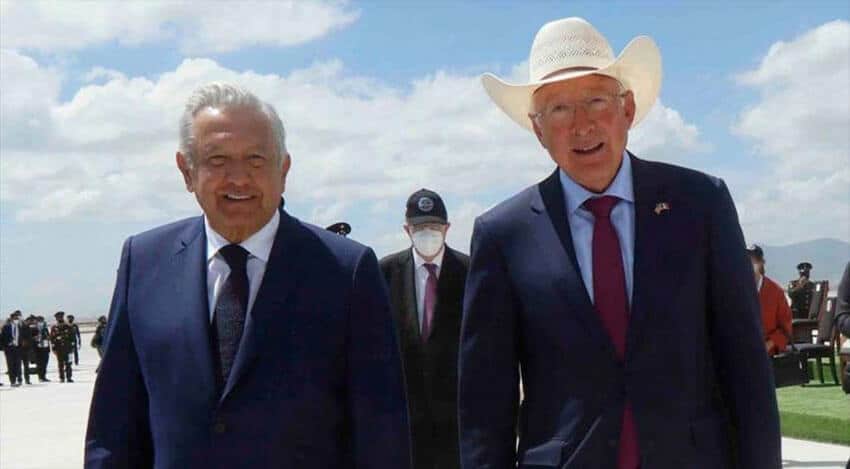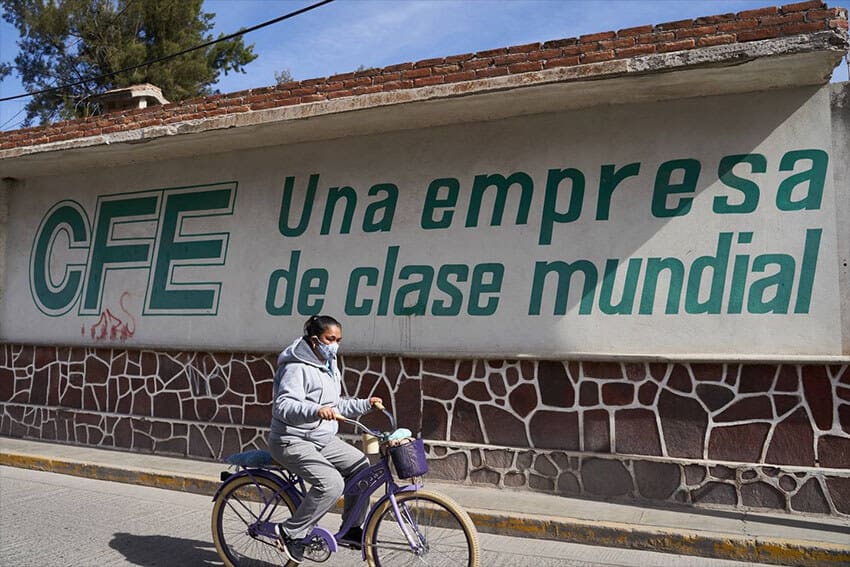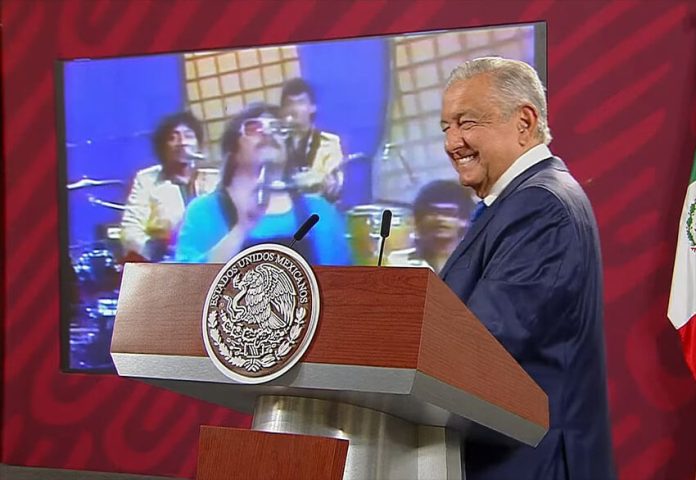United States Ambassador Ken Salazar and the Canadian Chamber of Commerce in Mexico (Cancham) have advised Mexico to take energy policy objections seriously.
Both the United States and Canada have requested consultations under the United States-Mexico-Canada Agreement (USMCA), the free trade pact that took effect in 2020. They believe that policies that favor the Federal Electricity Commission and the state oil company Pemex unfairly discriminate against foreign companies that operate in Mexico’s energy sector.
In announcing the U.S. request for consultations, the Office of the United States Trade Representative complained about “Mexico’s delays, denials, and revocations of U.S. companies’ abilities to operate in Mexico’s energy sector” and asserted that “Mexico’s policy changes threaten to push private sector innovation out of the Mexican energy market.”
President López Obrador on Wednesday displayed flippant disregard for the U.S. request, going so far as to mock it by playing a song at his morning news conference whose title translates to “Oh, How Scary.”

Salazar, who has been accused of being too close to AMLO, took to Twitter to advocate a different approach.
“The consultation mechanism is a fundamental element of USMCA that benefits all three countries by enabling us to quickly resolve disputes,” he wrote. “We must approach this USMCA energy dispute with determination and seriousness for an expeditious resolution.”
For his part, the vice president of Cancham’s energy committee said that “Mexico must attend the consultations request with all seriousness.”
Carlos de María y Campos added that the consequences of not reaching agreement during the consultation phase could be very serious. If there is no resolution, the United States and Canada could seek the establishment of dispute panels to deal with the matter. If they fail to achieve the outcome they seek, the two countries could ultimately impose punitive tariffs on Mexican imports.
“The impact [the dispute] could have on the economy is nothing to laugh about,” said de María y Campos.
López Obrador pledged Thursday that the government would defend its energy sector policies, noting that, despite its close trade relationship with the U.S. and Canada, it has the right to make its own decisions about domestic matters.
Foreign Affairs Minister Marcelo Ebrard said Thursday that the government was already putting together a team to defend Mexico’s policies in the face of the challenge. “We’re going to be prepared and we’re going to defend our arguments,” he said in a video posted to Twitter.
A spokesman for CFE — which is at the center of the dispute as the result of a law that gives the energy it generates priority on the national grid — asserted that Mexico’s policies don’t violate the USMCA. Luis Bravo said that CFE’s position is exactly the same as that of the president. “The agreement isn’t being violated and that’s what will be proven” during the consultations with the United States and Canada, he said.

Kenneth Smith Ramos, Mexico’s chief USMCA negotiator through 2019, said in an interview with Bloomberg that resolution during the 75-day consultation period was unlikely.
“This looks very difficult to be resolved during the consultation period because the violations are so precise, specific,” he said. “Mexico would need to completely overhaul two pieces of legislation that are essential to AMLO.”
If no resolution is reached and Mexico loses the dispute due to a panel decision, the United States and Canada can impose tariffs equal in value to the losses companies from those countries have incurred, Smith said. Ildefonso Guajardo, a deputy who was economy minister in the 2012-18 government led by Enrique Peña Nieto, said the same in an interview with journalist Carmen Aristegui.
United States officials have spoken of losses of between US $10 billion and $30 billion, meaning that Mexican exports to the U.S. could be subject to tariffs within that range. Canadian tariffs would further hurt Mexican exports. BloombergNEF, a strategic research provider, has calculated that Mexico’s energy policies place at least $22 billion in private investment at risk.
According to Smith, the dispute could potentially be one of the most expensive trade spats since NAFTA, the predecessor to USMCA, took effect in 1994. Guajardo, who as economy minister also had a central role in the negotiation of USMCA, noted that farmers and auto sector manufacturers — both of which are large exporters — could end up paying the price for the discontent generated by Mexico’s energy sector policies.
Luis de la Calle, a former deputy economy minister, said that Mexico’s ability to take advantage of the current global economic conditions could be jeopardized by the trade dispute. He told Bloomberg that the re-routing of supply chains from Asia amid disrupted global shipping networks could boost Mexican exports by billions — over US $35 billion annually, according to the Inter-American Development Bank — but the trade dispute places some of that at risk.
De la Calle said that economic problems in Europe and China have made North America the “most competitive region in the world” right now, and that if there is no resolution to the dispute “the main cost” would be not taking advantage of “the international context that tremendously favors North America.”
Smith described the situation in blunt and evocative terms. “We are watching a potential train crash between the U.S., Mexico and Canada,” he said.
